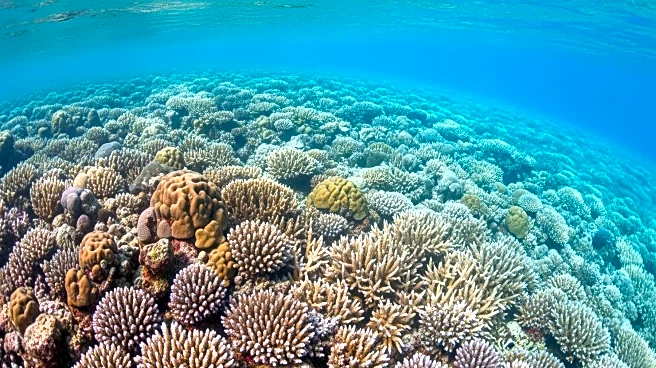What's Happening?
The world's first major climate tipping point has been triggered, marked by the irreversible decimation of warm water coral populations due to rising temperatures. This development signals a point of no return, with global consequences that could be catastrophic.
Experts are raising alarms about the widespread coral dieback, emphasizing the urgent need for action to mitigate further damage. The episode highlights the severity of climate change impacts on marine ecosystems, which are crucial for biodiversity and coastal protection.
Why It's Important?
The irreversible loss of coral populations poses significant threats to marine biodiversity, fisheries, and coastal communities that rely on coral reefs for protection and economic activities. Coral reefs are vital for maintaining marine life balance, and their decline could lead to the collapse of ecosystems, affecting food security and livelihoods. The situation underscores the urgent need for global climate action to prevent further environmental degradation and protect vulnerable species and habitats.
What's Next?
The scientific community is likely to intensify efforts to study and address the impacts of coral dieback, potentially leading to increased advocacy for stronger climate policies and conservation measures. Governments and environmental organizations may face pressure to implement strategies that reduce carbon emissions and promote sustainable practices to protect remaining coral ecosystems.
Beyond the Headlines
The coral dieback highlights ethical considerations regarding humanity's responsibility to preserve natural environments for future generations. It also raises questions about the effectiveness of current climate policies and the need for innovative solutions to combat climate change.















